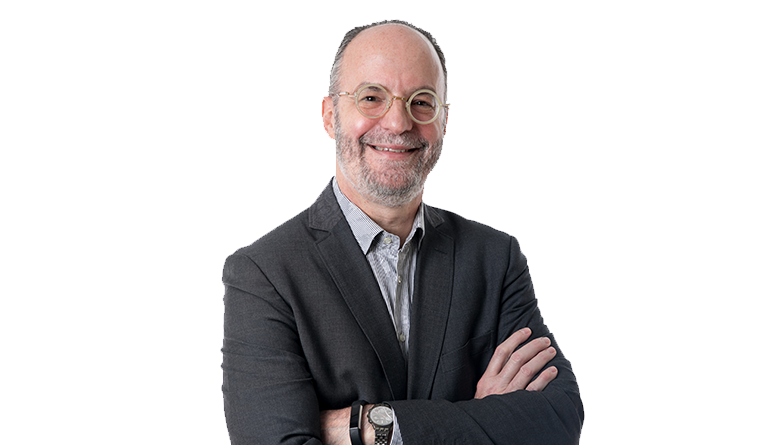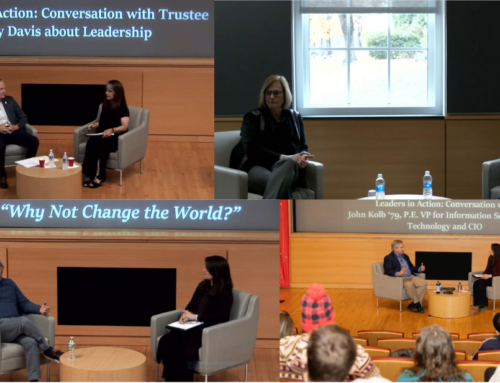Carlos Vázquez ’80 is the chief financial officer of Popular Inc., the holding company of Puerto Rico’s largest bank and the 40th largest financial institution in the U.S. He has a bachelor’s degree from Rensselaer and an MBA from Harvard. He is also a member of the School of Engineering’s Advisory Board. After 15 years at JP Morgan, Vázquez joined Popular as executive vice president in 1997 to establish and lead the Risk Management Group; he also headed Popular’s Consumer Lending Group in Puerto Rico and the bank’s U.S. mainland operations.
Two years ago, Puerto Rico was devastated by Hurricane Maria. What were some of the challenges your customers faced during that time?
There were many challenges, but the most critical one and the one that was most underestimated was the lack of electricity. The local electric grid had been underinvested in and undermaintained for decades, resulting in a very risky centralized generation and distribution system that did not survive hurricanes Irma and Maria. With no power, be it for personal or commercial activities, “life as we know it” stops working quickly. The lack of power also led to systemic failures in the communication network. This impeded the most basic of business transactions, like paying for goods with your debit card, even in commercial establishments that could open thanks to private emergency power generation. Access to cash became critical, so all our focus at the bank went to facilitating to our retail and commercial clients the quickest and most convenient access to their funds to help them deal with the emergency.
How has Banco Popular recovered?
Fortunately, we had a well-developed contingency plan, despite the limitations we discovered along the way. Our robust infrastructure allowed us to restore our operations and provide much-needed essential services to our clients very quickly. We also benefitted from an incredibly dedicated group of employees who, despite considerable challenges in their personal lives, went out of their way to serve our clients and their communities. The bank entered this chapter in a very strong financial condition, with ample liquidity and the capacity to respond quickly and decisively. This strong base, plus the economic activity that resulted from the recovery effort, led to near-record financial performance for the company in 2018. As we look forward, the pace and availability of federal recovery assistance will become critical for the future of the island, as will our capacity to modernize our government and administrative procedures to become more globally competitive.
What were some lessons you learned?
There is an old saying that even the best battle plans go out the window the minute the first shots are fired. It turns out that is also true of disaster recovery plans. There are so many variables that it is impossible to plan for all potential eventualities. In this environment you must be able to move quickly, improvise, and, most importantly, prioritize. You solve the biggest problem in front of you first, then move on to the next biggest one. The list, by the way, keeps changing minute by minute! So how does one prioritize? We found out that keeping the welfare of our clients, employees, and communities as our “North Star” generally led to the best answer. Since the hurricanes (Maria and Irma, 10 days apart!), we identified those areas of our disaster recovery plan that represented the most challenges and implemented changes to be better prepared for another event of this magnitude. As an example, we have changed the tertiary backup communication system for our “bunker” branches from land-based systems (wireline and cellular) to satellite systems. Finally, do not underestimate the value of leadership. An effective senior leadership team that communicates well and cares for each other, for the clients, employees, and the firm will set the tone and make a great difference.
What are the biggest challenges facing the financial services sector?
In the U.S. we benefit from a financial sector that is significantly stronger and more resilient than at any time in recent memory. That has allowed the financial sector to continue to contribute to economic growth, innovate, and better serve our clients and communities, while providing attractive returns to shareholders. Having said that, we face a convoluted and complex regulatory environment, economic uncertainty, and fast-evolving consumer preferences that will dictate the trends for the industry in the future. Overall, I think our largest challenge is how to profitably keep our service and value proposition relevant to our clients, employees, communities, and shareholders in an environment where our competition — fintechs, technology companies, credit unions — not face the same regulatory, compliance, and legacy technology hurdles that we face.
You graduated with a civil engineering degree. How can engineering help change lives?
I think the most important skill that an engineer gets trained for is rather simple: the capacity to solve problems. The engineering specialization in which you trained or the nature of the problems needing solution are not as important. What we contribute is a unique problem-solving approach: the capacity to identify and synthesize data; the ability to conceptualize solutions; and finally (but no less important), complex project management skills to move those solutions to execution. These things are applicable to any and all problems, from health-care challenges to development, design, and finance.
What advice would you give to today’s engineering students who want to make an impact on the world?
The challenges facing our professions, communities, and nations are as numerous and varied as our capacity to imagine potential solutions. As we learned in dealing with the hurricanes in Puerto Rico, you can’t plan for everything and most probably, you will end up doing many things that were not in your original plan. Be curious, embrace this uncertainty, and go solve problems, focusing on whichever ones instill the most passion for you. In my case, those ended up being problems in the financial sector. Finally, make sure you have good company for your journey, wherever it may take you. All this discovery is a lot more fun with good company.





